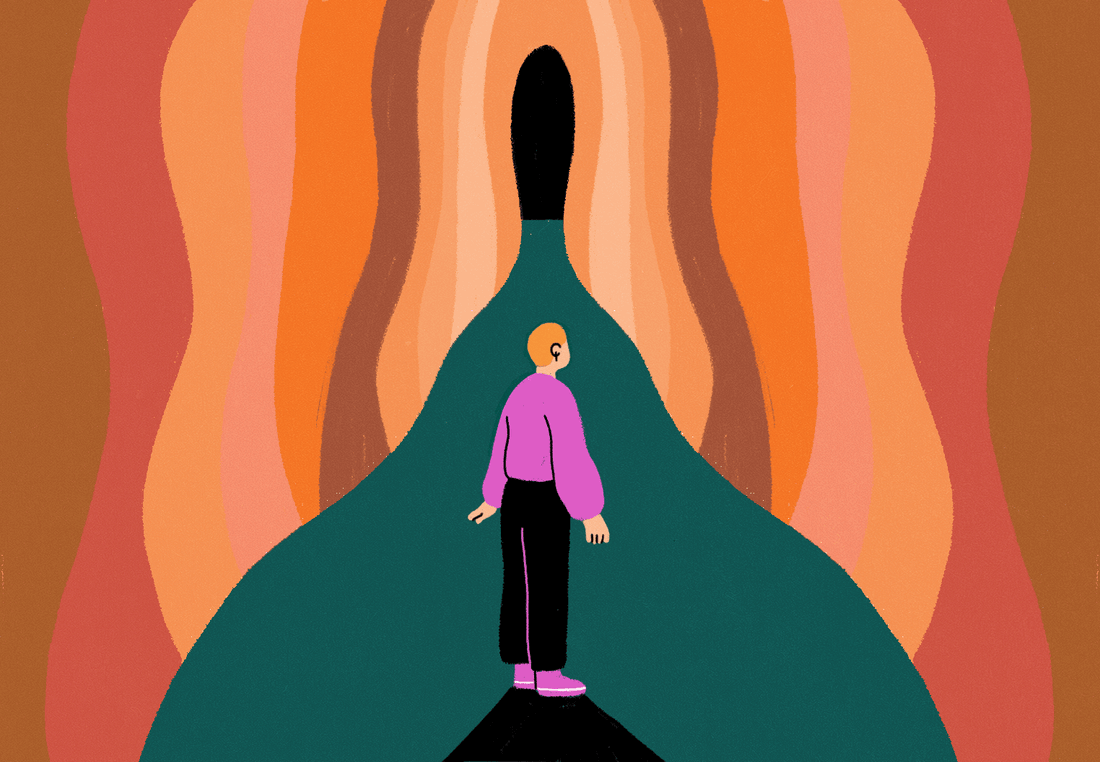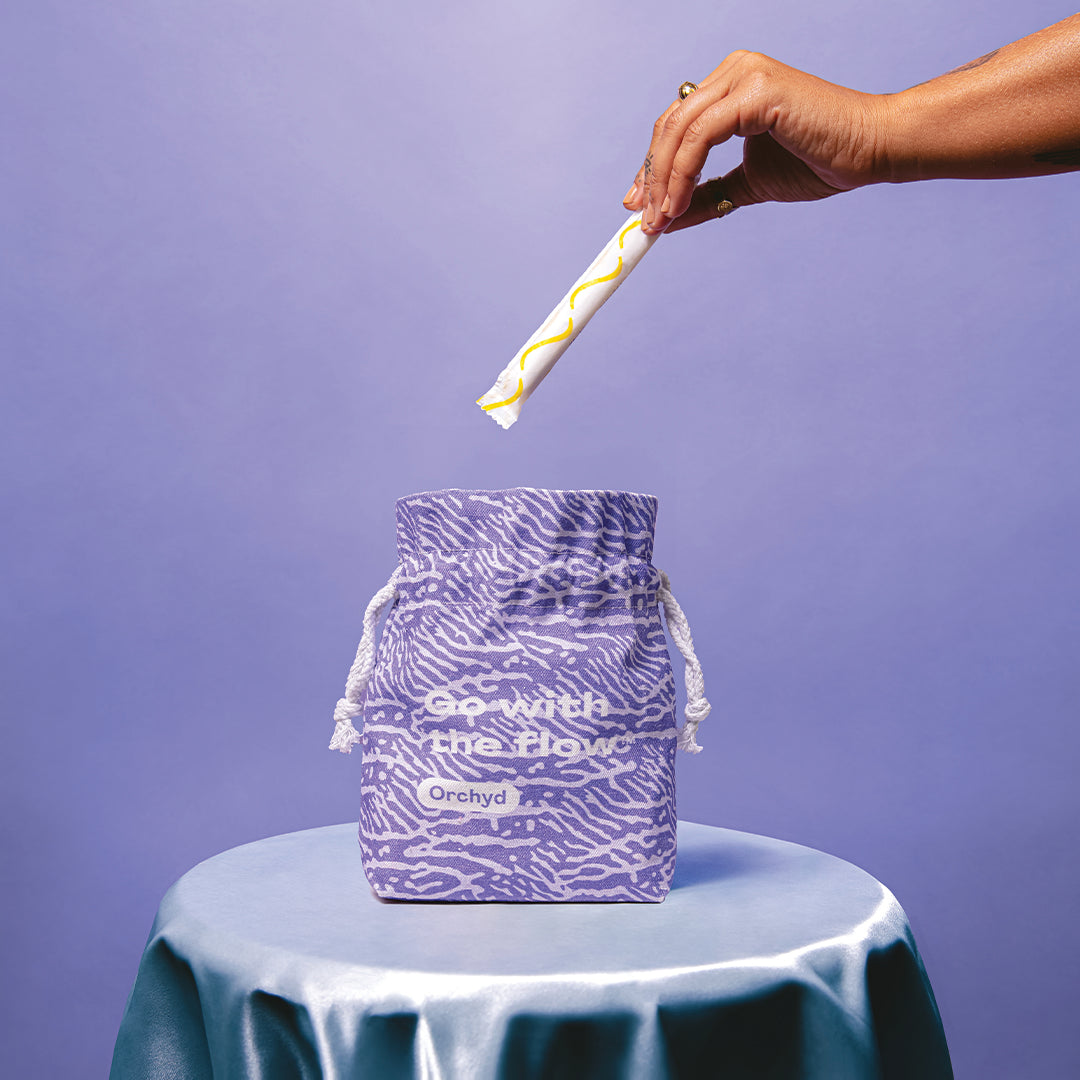
Being Trans or Nonbinary on Your Period
Share
That time of the month is not always something to get excited about–those days when you have to slow down and deal with your period despite your busy life. With all of the cramping, bloating, and other annoying symptoms, your period can make you feel like you’re not in control of your body. The process alone can be frustrating, but for our trans and nonbinary friends, it can be the source of a host of other frustrating issues.
For trans men and nonbinary people, their period can be an affair met with all of the regular symptoms plus a few more, not to mention that periods are already looked down upon by society. With all of the stigma surrounding periods and period culture being so cisgender-focused, it can be difficult for trans and nonbinary people to navigate their identity while menstruating.
While this article may not encompass all realities that trans and nonbinary people experience, it may help some understand that they are not alone. So, let’s talk more in-depth about some things that trans and nonbinary people may experience during their periods.
Dysphoria
While not every trans or nonbinary person experiences dysphoria, it is still an important experience to understand and hold space for. Trans men and nonbinary people may experience dysphoria in relation to menstruation because the process and societal association may feel at odds with their gender identity. So when that “time of the month” rolls around, it may cause a lot of really complicated feelings to arise.
If you aren’t quite sure what dysphoria is, we’re talking specifically about gender dysphoria. Gender dysphoria is a state in which a trans or nonbinary person may feel emotional or psychological distress at their gender identity being at odds with their biological sex. This state can cause discomfort with one’s body, stress, anxiety, and a whole host of other symptoms.
Because period culture is geared mainly towards cisgender women, it adds to the dysphoric feeling when one’s biological sex is at odds with their gender identity. For some transmasculine people, their period may be a big source of dysphoria and makes going through it every month a real pain in all aspects. It can be embarrassing or uncomfortable and add to depressive or anxious feelings.
Stigma
As mentioned before, periods are heavily stigmatized, even for cisgender women. Periods are often depicted as a gross, untouchable thing that befalls anyone with a vagina. That association, along with other harmful stereotypes, can make it difficult for anyone facing menstruation to feel okay with what their body is doing. For trans and nonbinary folks, it is a different kind of challenge as the stigma is even more layered. Trying to display yourself as the gender you identify with can be difficult when there is so much “femininity” attached to menstruation.
Especially for school-aged trans or nonbinary people, it can be exceptionally difficult. Period stigma can cause peers or teachers to tease, bully, or misguide trans men and nonbinary folks. It happens to cisgender women all the time, and with peers who may not understand your gender identity, it can be just as bad, if not worse, for trans and nonbinary peers.
Accessibility
Period products and marketing tend to focus solely on cisgender women, and everything is feminized. Folks who don’t identify with femininity or are trans or nonbinary are not represented. They are left out of the conversation and met with an industry that neither reflects or respects gender identity. This goes further than just the packaging of period products being marketed towards cis-women.
With periods being regarded as a biologically female experience, some limitations push people who experience menstruation but identify differently out of certain spaces. Bathrooms have been a hot button issue for several years now, and the issue of not being able to use a gender-preferred bathroom causes issues for those in the trans and nonbinary community. Trans men and masculine nonbinary people who use men’s restrooms will find a lack of available period products typically available in a women’s restroom. There are no menstrual product machines or baskets with products to take from. This causes a difference in access for those who may get their period unexpectedly and be without the products they need. Additionally, this can lead to discomfort and fear.
Another factor is period tracking apps. Nearly every app on the market is geared towards women and can often leave trans and nonbinary folks feeling left out of the conversation. A gender-neutral app is a great way to allow trans men and nonbinary folks to track their cycle without feeling dysphoric.
At Orchyd, we strive to meet this inequality. Our goal is to remove stereotypes, respect identity and sexuality, and push the boundaries on what is considered “the norm.” That is why we designed the Orchyd app the way we did.
Overall
These are just a few of the things that can make being trans or nonbinary during your period a difficult time. While these aren’t a universal set of issues, they are faced by many. It is important to remember that periods are not limited to cisgender women and that we should be inclusive in period culture to help reduce some of these issues.
The revolution may not happen all at once, but by being kind and inclusive to everyone facing menstruation, you can reduce a lot of discomfort and frustration for someone else.

